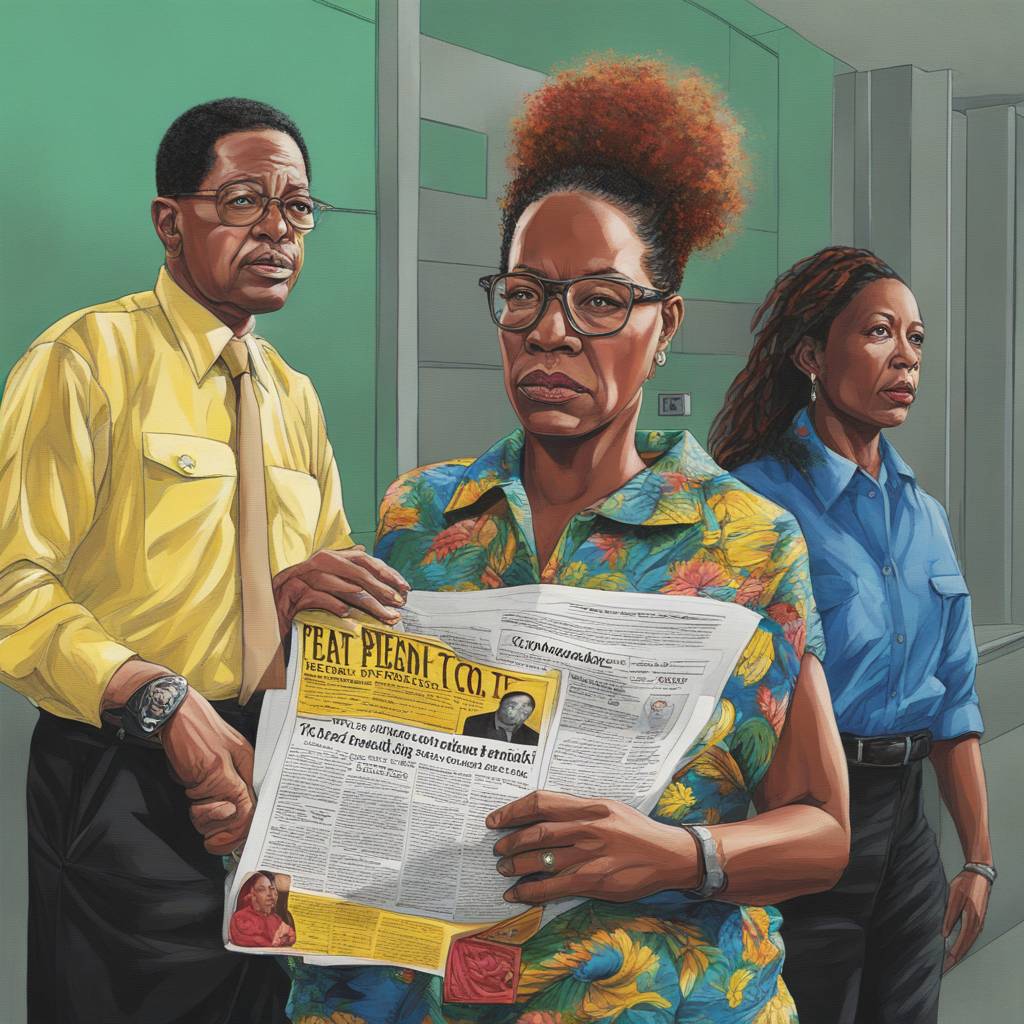During the 2004 murder trial of Brenda Andrew in Oklahoma, a prosecutor used her thong underwear as evidence to suggest that she had killed her estranged husband so she could run off with her boyfriend. This display in the courtroom led to gasps from onlookers and ultimately resulted in Ms. Andrew being convicted and sentenced to death. The Supreme Court is now considering whether to hear her appeal, which argues that the prosecution used gender stereotypes to portray her as a bad wife, mother, and woman throughout the trial.
Ms. Andrew’s lawyers have argued that gender biases infected the trial and influenced the jury’s decision. Evidence about her appearance, sexual practices, and mothering skills were presented daily, portraying her in a negative light. The prosecution introduced inflammatory evidence about her sexuality, including details of multiple affairs, suggestive clothing, and intimate books, leading to a biased portrayal of her as a hypersexual seductress. This case raises the question of whether courts should address evidence rooted in gender stereotypes in the same way as they address evidence tainted by racial bias.
Prosecutors in the case have not provided substantial justification for using evidence related to Andrew’s appearance and sexuality, claiming it was minimal compared to the overall case against her. State and federal appeals courts have largely agreed that while the evidence was regrettable, there was enough other evidence to support Andrew’s guilt. The boyfriend of Ms. Andrew, James Pavatt, admitted to shooting her husband but claimed he acted alone, leading to both of their capital murder charges. Pavatt was also sentenced to death and is set to be executed in July.
In judges’ dissents from previous rulings, concerns were raised about the emphasis on Ms. Andrew’s sex life throughout the trial. Judge Arlene Johnson stated that while she would have let Andrew’s conviction stand, she was concerned that improper evidence may have influenced the decision to sentence her to death. Judge Robert E. Bacharach went further, suggesting that not only should Andrew’s death sentence but also her conviction be overturned. The focus on Andrew’s sexuality throughout the trial painted her as a promiscuous, immoral woman, which may have affected the jury’s perception of her innocence.
Attorney Sandra Babcock highlighted the double standard in the treatment of male and female defendants in capital cases. She emphasized the impossibility of a male defendant having their personal belongings, like boxers, presented in court as evidence against them. This case brings to light the historical mistreatment of women on trial for capital murder, subjected to shaming tactics for centuries. The Supreme Court’s decision on whether to consider Ms. Andrew’s appeal could have significant implications for challenging gender biases in legal proceedings.


